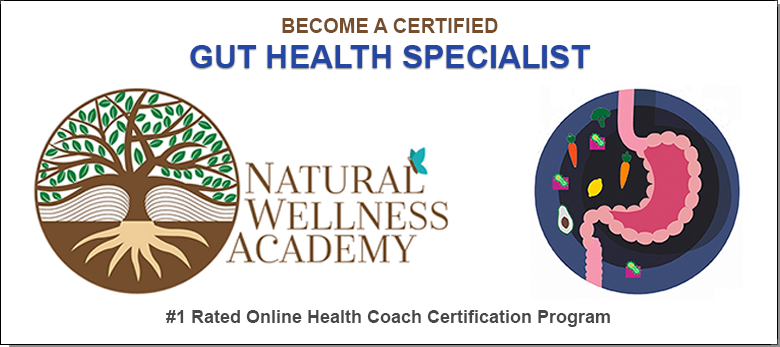
The connection between gut health and mental well-being is gaining recognition in the world of natural health. Scientific studies increasingly highlight how our gut microbiota can influence our brain function and mood. Here we explore the fascinating relationship between a balanced gut and improved mental health, drawing insights from the Mind-Gut Guru Program. By understanding the gut-brain axis, common gut health issues, and effective strategies for maintaining gut health, you can enhance your overall well-being.
Contents
Understanding the Gut-Brain Axis
To fully appreciate how gut health can impact mental well-being, it’s essential to understand the biological basis of the gut-brain axis. This intricate communication system between the gut and the brain plays a pivotal role in maintaining overall health.
Biological Basis of the Gut-Brain Connection
The gut-brain connection is deeply rooted in our biology. It involves a complex interplay of neural, hormonal, and immunological pathways that facilitate communication between the gastrointestinal tract and the central nervous system.
Role of the Vagus Nerve
The vagus nerve is a critical component of the gut-brain axis. It is the longest cranial nerve, extending from the brainstem to the abdomen, and acts as a major communication highway between the gut and the brain. This nerve helps regulate various bodily functions, including digestion, heart rate, and respiratory rate. By transmitting signals from the gut to the brain, the vagus nerve plays a crucial role in maintaining homeostasis and responding to changes in the internal environment.
Interaction Between Gut Microbiota and the Brain
Gut microbiota, the diverse community of microorganisms residing in the intestines, are key players in the gut-brain axis. These microorganisms produce numerous metabolites, such as short-chain fatty acids, neurotransmitters, and other signaling molecules, which can influence brain function. For instance, certain gut bacteria produce serotonin, a neurotransmitter that contributes to feelings of well-being and happiness. This interaction between gut microbiota and the brain underscores the importance of maintaining a healthy gut microbiome for optimal mental health.
Influence of Gut Health on Mental Health
The state of our gut health can significantly affect our mental well-being. Various mechanisms contribute to this influence, ranging from neurotransmitter production to the modulation of inflammatory responses.
Production of Neurotransmitters
Neurotransmitters are chemical messengers that facilitate communication between nerve cells. Many of these neurotransmitters, such as serotonin, dopamine, and gamma-aminobutyric acid (GABA), are produced in the gut. A healthy gut microbiome supports the production and regulation of these neurotransmitters, which are essential for mood regulation, anxiety reduction, and cognitive function. An imbalance in gut microbiota can disrupt the production of these crucial chemicals, potentially leading to mental health issues.
Impact on Mood and Cognitive Functions
The gut-brain axis influences various aspects of mental health, including mood and cognitive functions. Research has shown that gut health can affect stress responses, emotional regulation, and even memory and learning. For example, a balanced gut microbiome can help reduce symptoms of anxiety and depression by promoting the production of anti-inflammatory compounds and supporting overall brain health. Conversely, poor gut health can lead to increased inflammation and oxidative stress, which are linked to various mental health disorders.
Common Gut Health Issues Affecting Mental Health
Understanding common gut health issues is essential for recognizing how they can impact mental health. By identifying and addressing these problems, we can take significant steps toward improving both gut and mental well-being.
Dysbiosis and Its Effects
Dysbiosis refers to an imbalance in the gut microbiota, where harmful bacteria outnumber beneficial ones. This condition can disrupt normal gut functions and negatively affect mental health.
Imbalance in Gut Microbiota
A healthy gut contains a diverse range of microorganisms that work together to support digestion, immune function, and overall health. Dysbiosis occurs when this balance is disrupted, often due to factors like poor diet, antibiotics, or chronic stress. An overgrowth of harmful bacteria can lead to a reduction in beneficial bacteria, impairing the gut’s ability to function properly [1].
Symptoms and Consequences
Symptoms of dysbiosis can include bloating, gas, diarrhea, and constipation. Beyond these digestive issues, dysbiosis has been linked to mental health problems such as anxiety, depression, and cognitive impairment. The imbalance in gut microbiota can affect the production of neurotransmitters and increase inflammation, both of which can contribute to mental health disorders.
Leaky Gut Syndrome
Leaky gut syndrome, or increased intestinal permeability, is a condition where the lining of the intestines becomes damaged, allowing toxins and undigested food particles to enter the bloodstream. This can have a significant impact on mental health.
Explanation and Causes
The intestinal lining acts as a barrier that controls what enters the bloodstream from the digestive tract. In leaky gut syndrome, this barrier is compromised, often due to factors like chronic stress, poor diet, and infections. When the intestinal lining is damaged, harmful substances can pass through and trigger immune responses.
Link to Mental Health Disorders
The leakage of toxins and pathogens into the bloodstream can lead to systemic inflammation and affect brain function. This increased inflammation is associated with a higher risk of developing mental health disorders such as anxiety, depression, and mood swings. By addressing leaky gut syndrome, we can potentially reduce these mental health risks.
Chronic Inflammation
Chronic inflammation in the gut can have far-reaching effects on overall health, including mental well-being. Understanding the role of inflammation can help in managing its impact on mental health.
Role of Inflammatory Responses
Inflammation is a natural immune response to injury or infection. However, when inflammation becomes chronic, it can damage healthy tissues and organs. In the gut, chronic inflammation can be caused by factors like dysbiosis, leaky gut syndrome, and dietary irritants [2].
Connection to Depression and Anxiety
Chronic inflammation in the gut has been linked to the development of mental health conditions such as depression and anxiety. Inflammatory cytokines, which are released during chronic inflammation, can affect brain function and lead to changes in mood and behavior. By reducing gut inflammation, we can help alleviate some of the symptoms associated with these mental health disorders.

The Mind-Gut Guru Program: An Overview
The Mind-Gut Guru Program is a comprehensive initiative designed to help individuals understand and enhance the mind-gut connection. By focusing on key aspects of gut health and mental well-being, this program offers practical strategies and personalized support to achieve a balanced and healthy life.
Introduction to the Program
The Mind-Gut Guru Program aims to educate participants on the critical connection between gut health and mental health. Through a series of structured modules, the program provides tools and techniques to promote overall well-being.
Objectives and Goals
The primary goal of the Mind-Gut Guru Program is to improve participants’ mental health by addressing and optimizing their gut health. The program aims to:
- Educate about the gut-brain axis and its impact on mental well-being.
- Provide practical dietary and lifestyle recommendations.
- Offer personalized coaching to address individual needs.
- Foster long-term habits that support a healthy gut and mind.
Key Components
The Mind-Gut Guru Program includes several key components designed to offer a holistic approach to health:
- Educational modules on the gut-brain connection.
- Nutritional guidance and meal planning.
- Stress management techniques.
- Ongoing support and coaching.
Curriculum and Modules
The program’s curriculum is divided into four main modules, each focusing on different aspects of the mind-gut connection. These modules are designed to provide comprehensive knowledge and practical skills.
Understanding the Gut-Brain Axis
This module provides an in-depth look at the biological basis of the gut-brain connection. Participants learn about the role of the vagus nerve, gut microbiota, and the ways these elements influence mental health. The module also covers common gut health issues and their impact on overall well-being [3].
Nutrition and Gut Health
Nutrition plays a crucial role in maintaining gut health. This module offers dietary guidelines and meal plans that promote a healthy gut microbiome. Participants learn about the importance of balanced nutrition, probiotics, prebiotics, and how to incorporate gut-friendly foods into their daily diet.
Stress Management Techniques
Stress can significantly affect gut health and, in turn, mental health. This module introduces various stress management techniques such as mindfulness, meditation, and relaxation exercises. Participants learn how to reduce stress levels and improve their overall well-being.
Personalized Coaching and Support
The final module focuses on providing personalized support to each participant. Coaches work with individuals to create tailored plans that address their unique needs and goals. Ongoing support ensures that participants can implement and maintain healthy habits for long-term success.
Strategies for Balancing Gut Health
Achieving and maintaining a balanced gut is crucial for overall health and mental well-being. The Mind-Gut Guru Program offers several effective strategies that focus on diet, supplements, lifestyle modifications, and mindfulness practices.
Dietary Interventions
A healthy diet is the foundation of good gut health. The foods we consume can either promote a balanced gut microbiota or contribute to dysbiosis and other gut issues.
Importance of a Balanced Diet
A balanced diet rich in fiber, whole grains, fruits, and vegetables supports the growth of beneficial gut bacteria. These foods provide essential nutrients and prebiotics that feed the good bacteria in the gut, helping to maintain a healthy microbiome. Reducing the intake of processed foods, sugar, and unhealthy fats is also crucial for preventing inflammation and promoting gut health.
Foods That Promote Gut Health
Incorporating specific foods into your diet can significantly improve gut health. Fermented foods like yogurt, kefir, sauerkraut, and kimchi are excellent sources of probiotics that help replenish beneficial bacteria. High-fiber foods such as beans, legumes, and whole grains act as prebiotics, feeding the good bacteria. Other gut-friendly foods include garlic, onions, bananas, and asparagus.
Probiotics and Prebiotics
Probiotics and prebiotics play a vital role in maintaining a healthy gut microbiome. Understanding their benefits and how to incorporate them into your diet can help achieve a balanced gut.
Role in Maintaining Gut Microbiota
Probiotics are live beneficial bacteria that can help restore and maintain a healthy gut microbiome. They can be found in supplements and fermented foods. Prebiotics, on the other hand, are non-digestible fibers that feed these beneficial bacteria. A diet rich in both probiotics and prebiotics supports a diverse and balanced gut microbiota, which is essential for overall health.
Recommended Supplements and Sources
Probiotic supplements come in various strains and concentrations, each offering different health benefits. When choosing a supplement, it’s important to look for those that contain multiple strains of bacteria and have been clinically tested for efficacy. Natural sources of probiotics include fermented foods like yogurt, kefir, and kombucha. Prebiotic supplements are also available, but they can be easily obtained from foods like garlic, onions, leeks, and bananas [4].
Lifestyle Modifications
Lifestyle factors such as stress, physical activity, and sleep quality can have a significant impact on gut health. Making positive changes in these areas can support a balanced gut.
Stress Reduction Techniques
Chronic stress can disrupt the balance of gut bacteria and lead to gut health issues. Incorporating stress reduction techniques into your daily routine can help mitigate these effects. Practices such as deep breathing exercises, yoga, and mindfulness meditation can reduce stress levels and promote a healthier gut. It’s also important to find time for hobbies and activities that bring joy and relaxation.
Regular Exercise and Its Benefits
Regular physical activity is beneficial for both gut health and overall well-being. Exercise helps regulate digestion, reduces inflammation, and supports a healthy gut microbiome. Aim for at least 30 minutes of moderate exercise most days of the week. Activities like walking, jogging, cycling, and swimming are excellent options for maintaining gut health.
Mindfulness and Mental Health Practices
Mindfulness practices can positively influence both gut health and mental well-being. These practices help manage stress and improve emotional regulation, which in turn supports a healthy gut.
Meditation and Relaxation Techniques
Meditation and relaxation techniques can reduce stress and improve gut health by promoting a state of calm and balance. Mindfulness meditation, progressive muscle relaxation, and guided imagery are effective methods for achieving relaxation. Regular practice of these techniques can help lower stress levels and improve gut function.
Cognitive Behavioral Approaches
Cognitive Behavioral Therapy (CBT) and other cognitive approaches can help manage stress and anxiety, which are known to impact gut health. CBT focuses on changing negative thought patterns and behaviors, leading to improved mental health and reduced stress. Integrating these approaches into daily life can support a healthier gut-brain connection.
References
[1] Studying the link between the gut and mental health is personal for this scientist
[2] Balancing Gut Microbiota Could Improve and Treat Anxiety
[3] How your belly could heal your brain
[4] Gut feelings: How food affects your mood

